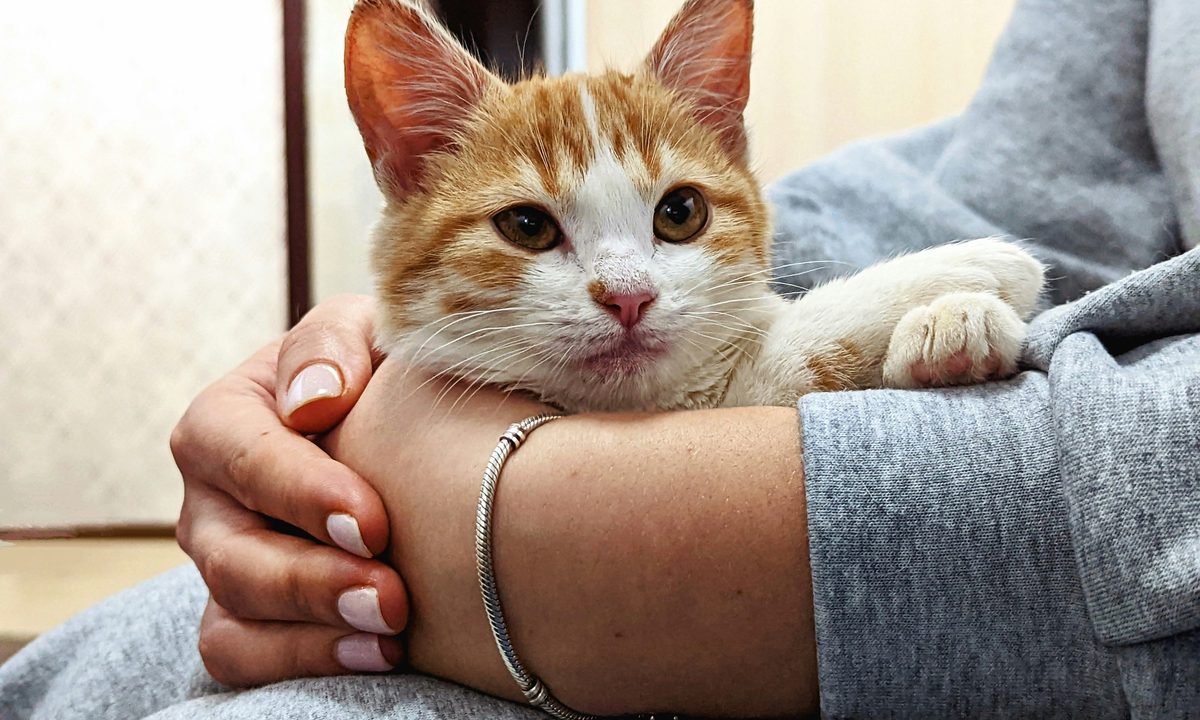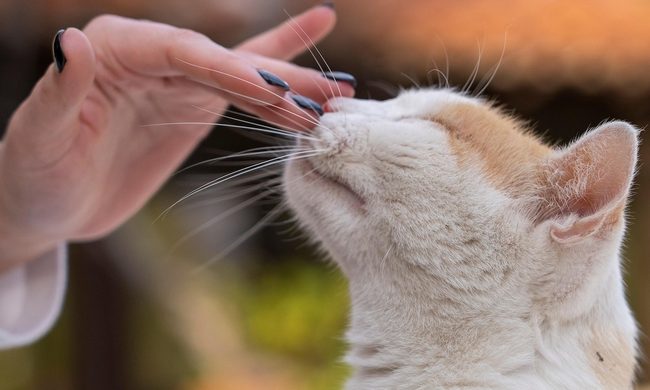Whether you’ve recently adopted your feline friend or they’ve been your constant companion for years, inappropriate urination is a problem you want to nip in the bud — sooner rather than later. Inappropriate urination, otherwise referred to as elimination issues, are frustrating for all pet parents. Don’t think you’re at fault. An estimated 10% of all cats will experience house soiling at some point in their lives.
Sadly, inappropriate litter box use is one of the most common reasons cats are surrendered to animal shelters each year. You’ve come to the right place if you’ve been wondering, “Why is my cat peeing everywhere?” We’ll share what you need to know about the most common reasons behind these issues, and we’ll teach you how you can put an end to your fur baby’s toilet troubles once and for all.
Why is my cat peeing everywhere?
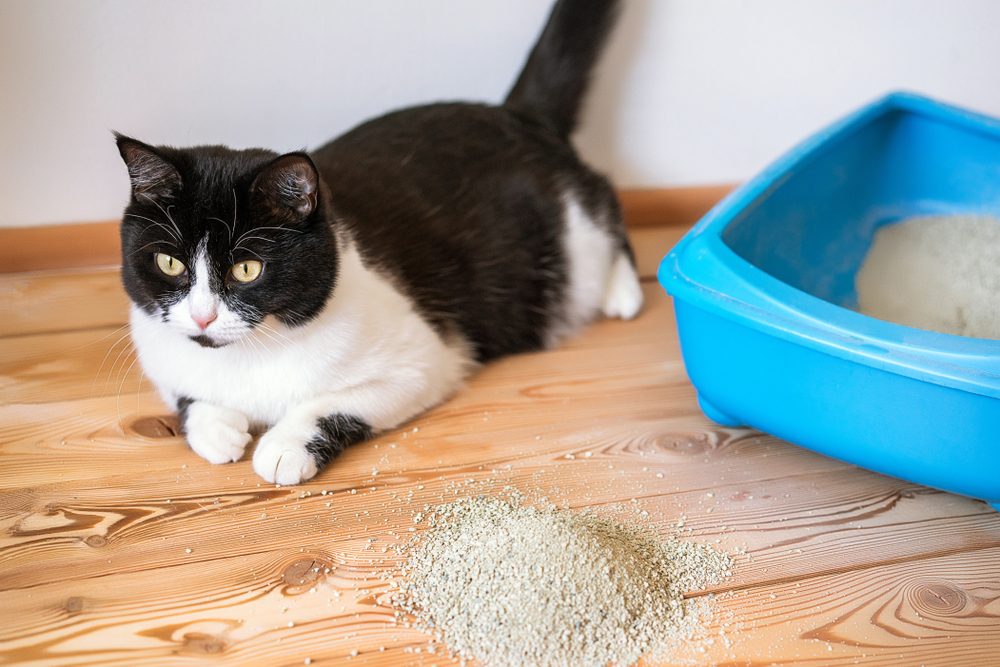
Cats are typically fastidious creatures that can’t stand being dirty, so a trip to the vet is in order if your fur baby is suddenly peeing outside their litter box. While your pet may be turning their nose up at their litter box for numerous reasons, underlying health conditions are the most concerning. Kitty could be suffering from one of the following health issues:
- A urinary tract infection
- Bladder stones
- Thyroid problems
- Kidney infection or disease
- Diabetes
- Cancer
- Urinary obstruction (more common in male cats)
If it’s not one of these, it could be something environmental.
The litter box isn’t clean
The problem could be as simple as a dirty litter box. You should scoop your cat’s litter box daily and empty it completely twice a week if you use non-clumping clay litter, and once every 2-3 weeks if you use a clumping formula. Keeping your cat’s litter box clean is not only beneficial for your pet’s health, but it will also prevent your cat from seeking other places to urinate and defecate. Because felines are discriminating creatures, it’s also possible that your fur baby dislikes where you’ve placed their litter box. Don’t store your cat’s toilet near their feeding area or they may pee on your favorite chair instead of their box.
You switched to a new cat litter
If your mouser’s elimination issues began after you switched to a new brand of litter, you’ll probably want to go back to the old one. Cats have extremely sensitive noses, so your fur baby may hate the smell of their new litter. It’s also possible your cat hates the new litter’s texture. Either way, the best litter for your finicky feline is the kind they’re willing to use.
Your cat is stressed
Stress is also a common cause of urinary incontinence. If your four-legged friend is still adjusting to their new home, they may be toileting outside their litter box because they’re feeling anxious. Cats are sensitive, and any sudden changes in routine can cause anxiety. Temporary changes, such as having houseguests or remodeling the home, may cause them to pee to mark their territory and express their anxiety.
Some cats may even experience bladder control issues as a stress response, making it impossible for your fur baby to reach the litter box in time. If this is the case with your kitty, you might want to consider getting an additional box for your home and storing it where your cat frequently eliminates. Speak to your vet about finding ways to help your cat’s anxiety issues; they may recommend seeing a cat behaviorist or prescribe medication to help.
Do cats pee out of spite?
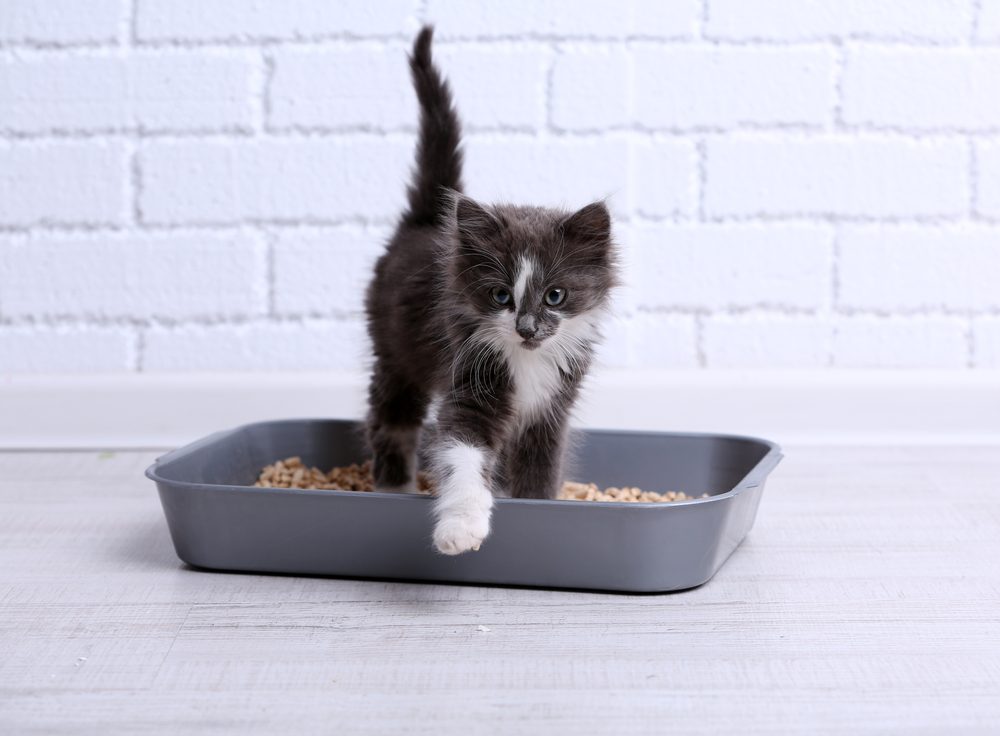
As frustrating as your cat’s inappropriate urination can be, try to remember that your fur baby isn’t a tiny, furry human. While we’re capable of experiencing complex emotions like spite, your kitty isn’t trying to irritate you when they pee outside the litter box. You should take your cat to the vet for a checkup if they begin to urinate or defecate outside the litter box. Your feline friend may be irritated by changes in their surroundings, but cats don’t pee out of spite.
Can you discipline a cat for peeing?
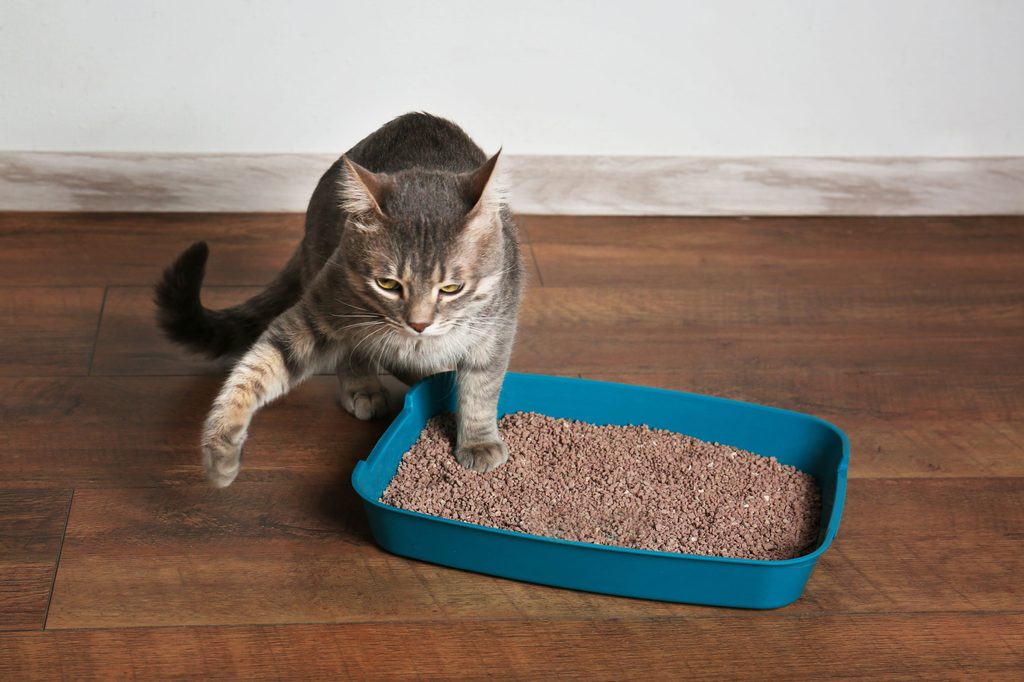
If your pet is stress urinating then punishing will only make it worse (and we never recommend this type of training in any animal). Don’t ever yell at, swat, or even threaten your kitty that will become scared from sudden motions or loud noises. A few cats might submissive pee in response to getting called out — definitely not the outcome you were hoping for. If you can make it to your beastie in time, you can try to get them to their litter before they start to wee and give them a treat or pat after they do their business where they’re supposed to.
How do I get my cat to stop peeing everywhere?
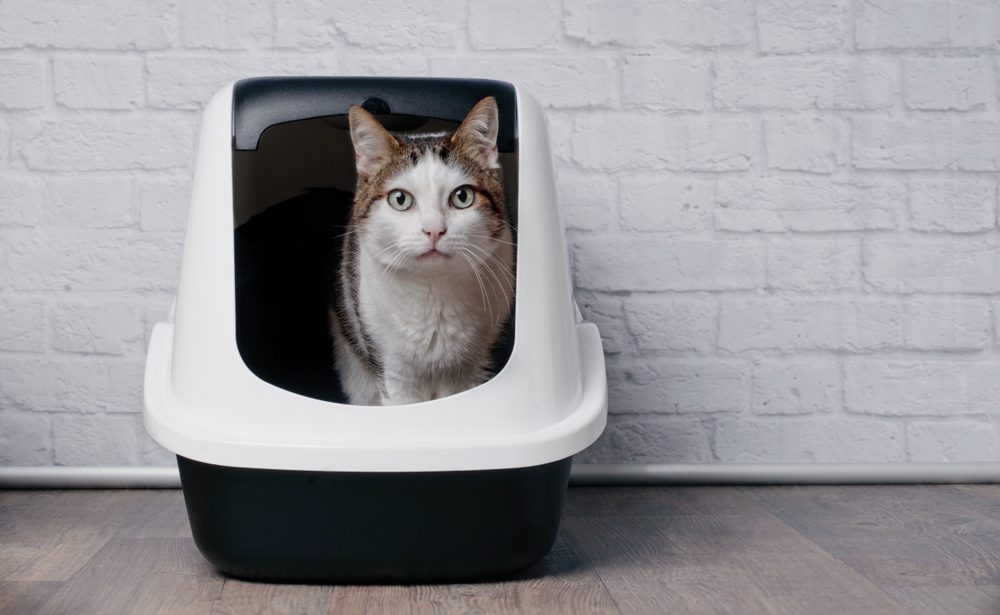
Fortunately, getting your cat to stop peeing everywhere isn’t impossible. Keep your cat’s litter box clean, store it in an area they can easily access, and take your fur baby to the vet at the first sign of inappropriate urination. If your vet gives your cat a clean bill of health, there are a few things you can try to make them stop peeing all over the house.
- Make sure you spend plenty of time bonding with your cat. Happy cats are less stressed, and therefore, less likely to experience elimination issues.
- Use treats. Cats refuse to urinate and defecate near their food and water dishes, so try placing treats in areas where your cat likes to pee. If their favorite makeshift bathroom has treats waiting, they’ll be less inclined to pee there.
- Clean the spot where your cat has urinated thoroughly. The lingering smell of their urine could be attracting your cat to pee in the same spot repeatedly. Clean up any accidents with an enzymatic cleaner designed to eliminate pet odors.
Eliminating your cat’s unwanted behavior may sound like a daunting task, but it doesn’t have to be. Simply making a few changes to the litter box cleaning schedule, reducing household stress, and consulting your vet can go a long way in getting your cat to stop peeing everywhere. Clean up accidents as quickly as you can and try to stay patient. Your feline friend doesn’t mean to be naughty. Your cat is most likely anxious about something and needs your love and support.

